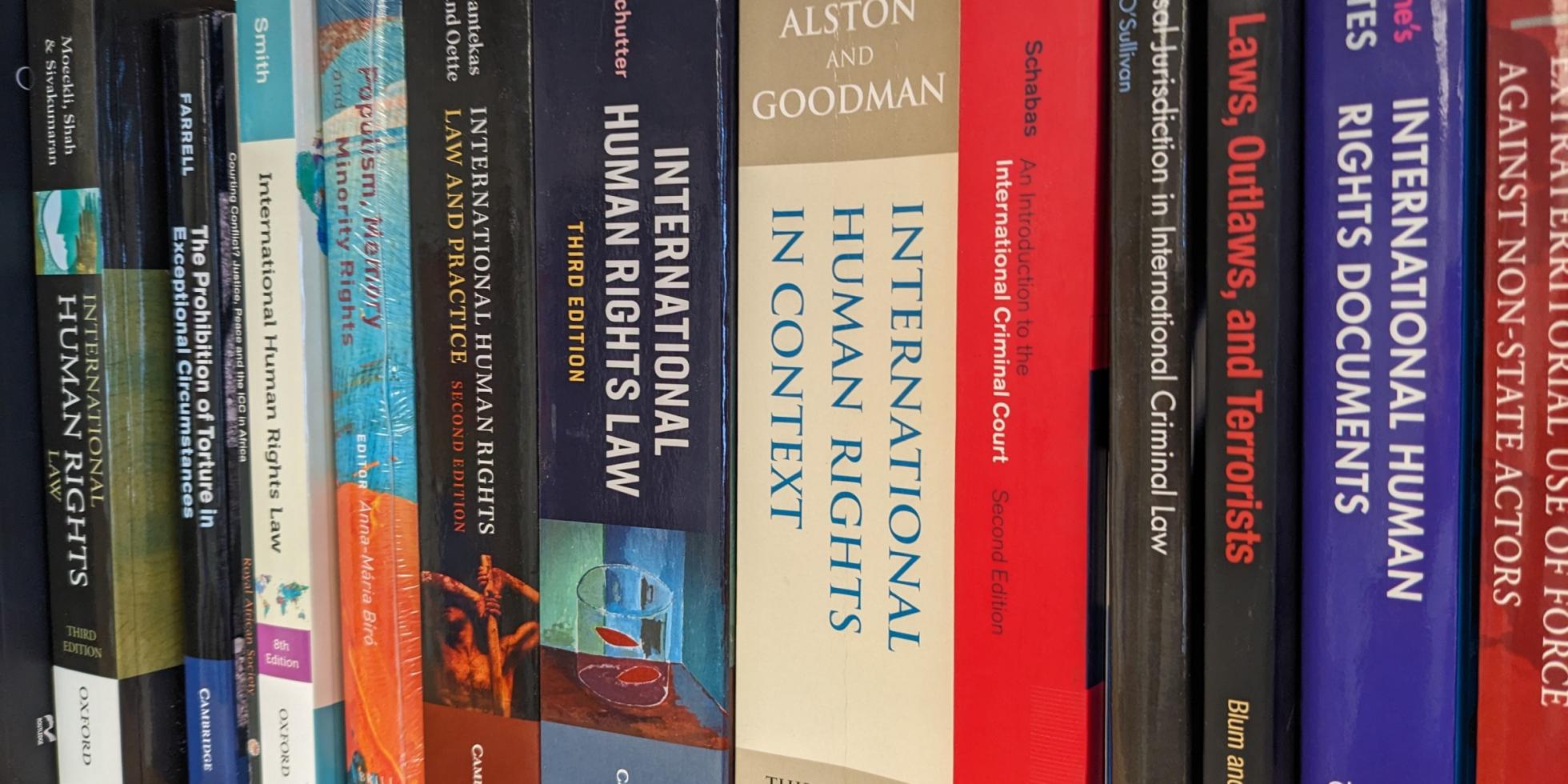The virtual human rights library brings together resources from multiple libraries and information services, both internal and external, to create an online hub dedicated to the study of human rights. This curation is unique in its interdisciplinary concerns and focuses on writings and research from social sciences, humanities, and law.
The virtual library is continually updated with the latest academic research in issue areas, as well as with relevant films, recorded conversations, and other forms of media.
Please Note:
The Virtual Library is usable by all visitors, but the hyperlinks to materials listed are for UChicago community members with a CNet ID and password.
Please direct feedback and suggestions to Kathleen Cavanaugh.
For technical assistance, email pozenhumanrights @ uchicago.edu.
Searchable Database
Click into the dropdowns to select the disciplines, keywords, and media type for your search, and then hit "Apply."
A World Divided: The Global Struggle for Human Rights in the Age of Nation-States
Once dominated by vast empires, the world is now divided into some 200 independent countries that proclaim human rights—a transformation that suggests that nations and human rights inevitably develop together. But the reality is far more problematic, as Eric Weitz...
A World Made New: Eleanor Roosevelt and the Universal Declaration of Human Rights
A World Made New is the dramatic and inspiring story of the remarkable group of men and women from around the world who participated in this historic achievement and gave us the founding document of the modern human rights movement...
About to Die: How News Images Move the Public
Due to its ability to freeze a moment in time, the photo is a uniquely powerful device for ordering and understanding the world. But when an image depicts complex, ambiguous, or controversial events--terrorist attacks, wars, political assassinations--its ability to influence...
Absolute Erotic, Absolute Grotesque: The Living, Dead, and Undead in Japan's Imperialism, 1895–1945
In this major reassessment of Japanese imperialism in Asia, Mark Driscoll foregrounds the role of human life and labor. Drawing on subaltern postcolonial studies and Marxism, he directs critical attention to the peripheries, where figures including Chinese coolies, Japanese pimps...
Adivasi Art and Activism: Curation in a Nationalist Age
As India consolidates an aggressive model of economic development, indigenous tribal people known as adivasis continue to be overrepresented among the country’s poor. Adivasis make up more than eight hundred communities in India, with a total population of more than...
After Evil: A Politics of Human Rights
The way in which mainstream human rights discourse speaks of such evils as the Holocaust, slavery, or apartheid puts them solidly in the past. Its elaborate techniques of "transitional" justice encourage future generations to move forward by creating a false...
After the Deportation: Memory Battles in Postwar France
A total of 160,000 people, a mix of résistants and Jews, were deported from France to camps in Central and Eastern Europe during the Second World War. In this compelling new study, Philip Nord addresses how the Deportation, as it...
Algorithms of Oppression: How Search Engines Reinforce Racism
In Algorithms of Oppression, Safiya Umoja Noble challenges the idea that search engines like Google offer an equal playing field for all forms of ideas, identities, and activities. Data discrimination is a real social problem; Noble argues that the...
All or Nothing: The Axis and the Holocaust 1941-43
German and Italian fascist armies in the Second World War treated the Jews quite differently. Jews who fell into the hands of the German army ended up in concentration camps; none of those taken by the Italians suffered the same...
Ambiguities of Domination: Politics, Rhetoric, and Symbols in Contemporary Syria
Treating rhetoric and symbols as central rather than peripheral to politics, Lisa Wedeen’s groundbreaking book offers a compelling counterargument to those who insist that politics is primarily about material interests and the groups advocating for them. During the 30-year rule...

